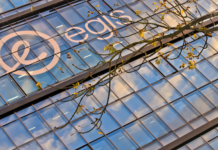
(Shutterstock)
GLASGOW’S plan to be one of the first cities to put forward a major net zero investment programme to the capital markets has featured at COP28.
Susan Aitken, leader of Glasgow City Council, outlined the plan yesterday at an event focussed on breaking down barriers to securing finance to decarbonise cities.
The Glasgow ‘greenprint’ features a prospectus of major investment-ready projects aimed at helping the city meet its environmental goals, this includes the creation of the Clyde Metro and scaling up of the Clyde Climate Forest by 9,000 hectares.
Plans will be brought forward early in the new year for the city’s own green funding model in a bid to secure ‘massive’ investment in a climate resilient future, the council added. The initiative will target innovative partnerships capable of delivering large-scale interventions in everything from energy systems and transport to buildings and biodiversity.
Councillor Susan Aitken said, “We talked at COP26 about the fact that nations make pledges, but it is cities that will actually push forward and take the kind of action that is necessary to deliver on those commitments.
“These events have been perfect examples that people – and crucially investors – are beginning to understand that role.
“Glasgow is taking its place among cities from every continent that are not only leading on climate action, but a just transition from an old economy to one that recognises that economic success, social justice and sustainability are indivisible.
“We have lots to learn from our partners, but we have a lot to offer cities across the world too.”
Councillor Aitken addressed an audience of around 400 international business and political leaders at the event, with finance specialists and leaders from Bristol and London also featuring.
She continued, “These are very difficult times for UK cities, both socially and economically – but Glasgow is determined to be a leader in the just transition to a new, green economy.
“We want to make Metropolitan Glasgow the most resilient, diverse and innovative regional economy – and improve life chances and opportunities for all Glaswegians.”













